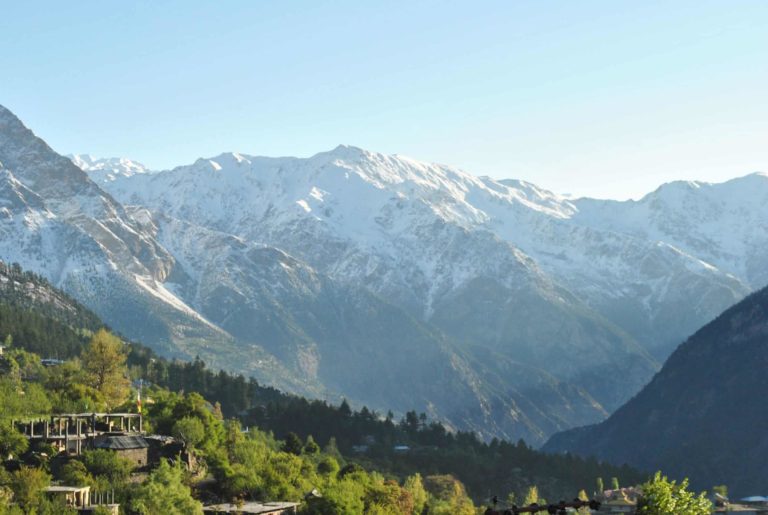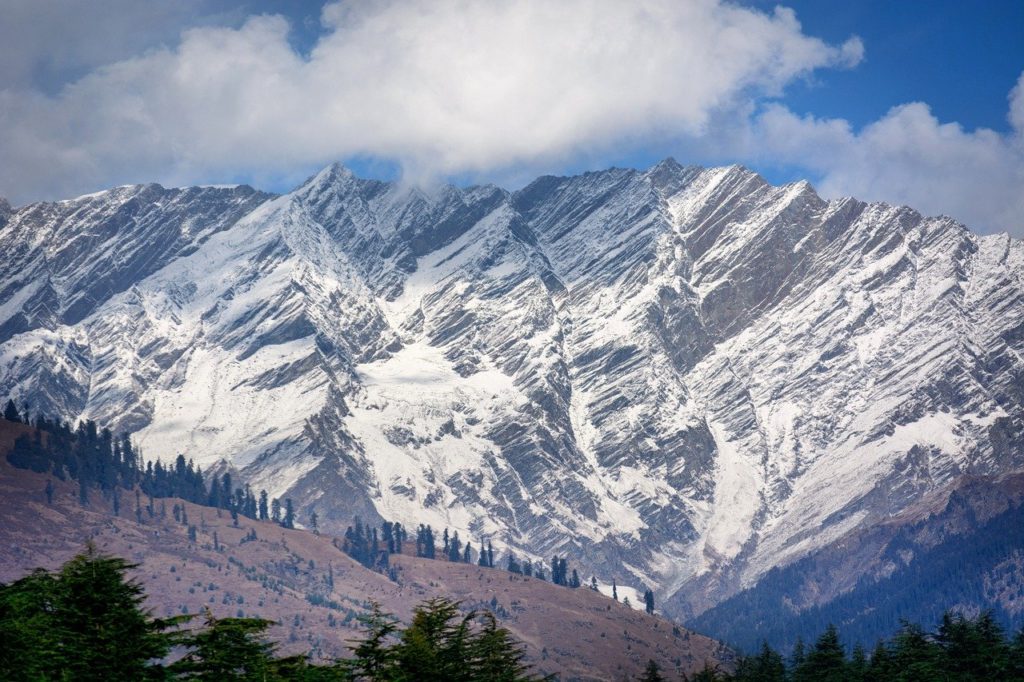- General
- Updated on August 19, 2025
Which State is Known as the Sleeping State of India and Why?

India is a land of diverse cultures, landscapes, and traditions. Each state has its own unique identity and story to tell. Among these, one state stands out with an unusual yet fascinating title – the “Sleeping State of India.” This name is reserved for Himachal Pradesh, a northern state nestled in the lap of the Himalayas. But why exactly is Himachal Pradesh called the Sleeping State of India? Let’s dive into the history, culture, and lifestyle of this serene state to understand the reason behind this unique title.
Understanding the Title “Sleeping State of India”
Before exploring the specifics of Himachal Pradesh, it’s important to understand what the title “Sleeping State of India” really means. Unlike the literal sense of sleep, the name symbolizes peace, calmness, and a laid-back lifestyle. It reflects a state where time moves at a slower pace compared to bustling metropolitan cities. Life here is not dominated by constant rush but by a harmonious balance with nature.
Himachal Pradesh has long been associated with tranquility, spiritual retreats, and breathtaking landscapes. The serene environment, snow-clad peaks, and simple lifestyle of its people give the impression of a state that is always “resting” in the arms of nature.
Himachal Pradesh: The Sleeping State of India
Himachal Pradesh, often referred to as the “Dev Bhoomi” (Land of the Gods), is situated in the Western Himalayas. Surrounded by majestic mountains, dense pine forests, and serene valleys, the state embodies a natural calm that many visitors interpret as being in a “sleeping state.”

The Peaceful Lifestyle of Himachal Pradesh
One of the primary reasons why Himachal Pradesh is called the Sleeping State of India is the slow-paced and content lifestyle of its people. Unlike the fast-moving metros, Himachal offers a life that values community, tradition, and coexistence with nature. Villages are often spread across hills, where residents follow traditional occupations such as farming, apple cultivation, and handicrafts.
The lack of industrial noise and minimal urban chaos makes life in Himachal Pradesh seem like an eternal pause button — calm, composed, and free from unnecessary stress.
Geographical Features That Add to the Title
The natural setting of Himachal Pradesh plays a vital role in why it is considered the Sleeping State of India.
Serene Valleys and Snow-Capped Mountains
The state is home to mesmerizing valleys like Kullu, Kangra, Spiti, and Chamba, each offering silence and scenic beauty that makes visitors feel as though they are far away from the world’s hustle. Snow-covered peaks such as Rohtang Pass, Kinnaur Kailash, and Dhauladhar ranges further add to the stillness of the state, enhancing its “sleeping” charm.
Forests and Natural Beauty
Himachal Pradesh is covered with thick forests of deodar, pine, and oak. These forests not only add to its beauty but also contribute to the calmness that defines the region. The fresh air, gurgling rivers, and gentle winds create a soothing environment that naturally slows down life’s pace.
Cultural Essence of Himachal Pradesh
Culture is another aspect that strengthens Himachal’s identity as the Sleeping State of India.
Traditional Festivals and Simplicity
Himachal Pradesh celebrates numerous traditional festivals such as Kullu Dussehra, Losar, and Minjar Mela, which reflect the state’s deep cultural roots. Unlike the grandeur of festivals in metropolitan areas, these celebrations are peaceful, rooted in spirituality, and focused on community bonding.
Spiritual Significance
Known as the Land of the Gods, Himachal Pradesh is dotted with temples, monasteries, and spiritual retreats. Places like Manikaran, Dharamshala, and Key Monastery in Spiti attract visitors looking for peace and self-discovery. This spiritual aura contributes to the perception of Himachal being a “sleeping” or meditative state.
Tourism and the Perception of Stillness
Himachal Pradesh is one of the top tourist destinations in India, not just for adventure sports but also for those seeking relaxation.
Retreats and Wellness Tourism
Over the years, the state has become a hub for yoga retreats, meditation centers, and Ayurveda resorts. Visitors from India and abroad come to Himachal for detox, peace of mind, and healing. This further emphasizes the image of the state as a resting and rejuvenating place.
Hill Stations and Slow Travel
Popular hill stations such as Shimla, Manali, Dharamshala, and Kasol are known for their slow-paced lifestyle. Tourists often describe their experiences as “stepping out of time” — sipping tea while gazing at mountains, strolling through apple orchards, or simply enjoying the fresh mountain breeze. This slow, dreamy atmosphere reinforces the title of Himachal as the Sleeping State of India.
Economic Factors and “Sleeping” Metaphor
Beyond culture and geography, the economic development of Himachal Pradesh also plays a role in why it is given this title.
Limited Industrialization
Unlike states such as Maharashtra, Gujarat, or Tamil Nadu, Himachal Pradesh has limited industrialization. The economy mainly relies on agriculture, horticulture, handicrafts, and tourism. The absence of large-scale industries keeps the state free from noise, pollution, and fast-paced competition.
Focus on Sustainability
Himachal Pradesh has always leaned toward sustainable living. From eco-friendly tourism initiatives to organic farming, the state prioritizes harmony with nature over aggressive economic growth. This conscious choice makes the state appear more “sleepy” compared to highly industrialized regions of India.
Himachal Pradesh in Contrast with Other States
To understand why Himachal Pradesh stands out, it helps to compare it with other states.
- Maharashtra is known as the financial hub of India.
- Punjab is recognized as the land of agriculture and prosperity.
- Kerala is often called “God’s Own Country” for its backwaters and greenery.
- Goa is famous for its vibrant beaches and nightlife.
In this contrast, Himachal Pradesh earns its title as the Sleeping State because it symbolizes calmness, peace, and a meditative lifestyle — a rare quality in today’s fast-paced world.
The Symbolic Meaning of “Sleeping State”
It’s essential to note that the title is not meant to criticize Himachal Pradesh as inactive or underdeveloped. Instead, it is a poetic and symbolic way of appreciating the restfulness, simplicity, and spiritual calm of the state. Just as sleep is essential for rejuvenation, Himachal Pradesh represents a place of healing and renewal for the soul.
Read Also : Top 10 Tea Plantations in India: A Guide to the Best Tea Estates
Conclusion
So, which state is known as the Sleeping State of India and why? The answer is Himachal Pradesh. Its breathtaking landscapes, peaceful lifestyle, spiritual depth, and limited industrialization all contribute to its image as a state that embodies rest and tranquility.
In a country where life is often fast-paced and chaotic, Himachal Pradesh offers a refreshing contrast — a chance to slow down, breathe deeply, and connect with nature. That is why it is fondly called the Sleeping State of India, not because it is inactive, but because it represents the rest and peace that every human soul longs for.
Join the discussion
Related Articles
No results available
ResetTrending Articles


- General
- Updated on December 16, 2025


- General
- Updated on December 15, 2025


- General
- Updated on December 11, 2025


- General
- Updated on December 11, 2025


- General
- Updated on December 11, 2025


- General
- Updated on December 2, 2025


- General
- Updated on December 5, 2025


- General
- Updated on November 27, 2025


- Health
- Updated on November 24, 2025


- General
- Updated on November 24, 2025
No results available
Reset


